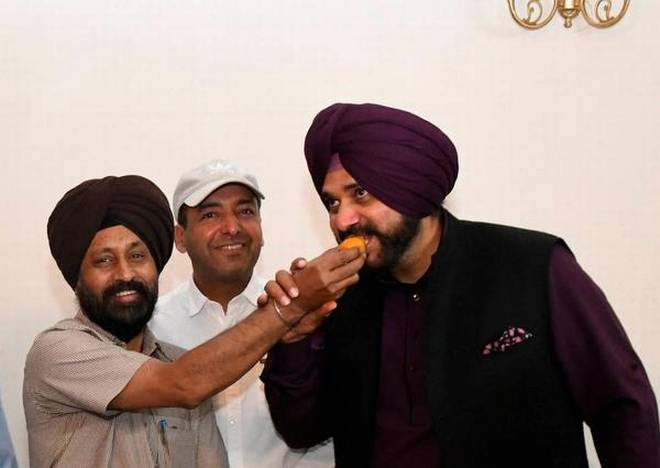
The Punjab Tourism Minister may face an one-year prison sentence if the court decides to swap the ₹1000 fine for a jail term under Section 323 IPC.
In a setback for Punjab Tourism Minister Navjot Singh Sidhu, the Supreme Court has decided to review its own judgment letting him off with a ₹1000 fine in a 30-year-old fatal road rage case.
The Supreme Court had on May 15 acquitted Mr. Sidhu of culpable homicide in the case while finding him guilty of the lesser offence of voluntarily causing hurt under Section 323 of the Indian Penal Code.
The judgment, written by a Bench led by Justice J. Chelameswar (now retired), reasoned that the crime was 30 years old and there was no former enmity between Mr. Sidhu and his victim, Gurnam Singh. It had even said that roadside brawls were a “very common sight in this country”.
Justice Chelameswar, who had authored the verdict, found that a payment of Rs. 1000 by the Punjab Minister to the victim’s family would “meet the ends of justice”.
Aggrieved by the judgment, Singh’s family decided to return to the Supreme Court for a rare remedy — a review of its own judgment, that too, through an open court hearing.
A Bench of Justices A.M. Khanwilkar and Sanjay Kishan Kaul decided there was merit in the family’s plea. The Bench found that May 15 judgment did indeed require a relook. Incidentally, Justice Kaul was the puisne judge and part of the Bench led by Justice Chelameswar which had authored the May 15 judgment.
The Review Bench, now led by Justice Khanwilkar, admitted the family’s petition and issued notice to Mr. Sidhu to respond on why the quantum of his punishment should not be changed.
“Issue notice restricted to quantum of sentence qua respondent number 1 — Navjot Singh Sidhu,” the Review Bench held in an order dated September 11 published on September 12.
Mr. Sidhu may face a prison sentence of one year if the court decides to swap the Rs.1000 fine for a jail term under Section 323 IPC.
On May 15, the Bench led by Justice Chelameswar, in a 46-page judgment, had found that the prosecution could not prove that Mr. Sidhu caused the death of Singh in 1988 after a roadside brawl on the right of way.
Though the Supreme Court conceded that Mr. Sidhu had given a single blow to the man’s head, it said that medical evidence was “absolutely uncertain” about the cause of Singh’s death shortly after the run-in.
The Supreme Court had set aside the Punjab and Haryana High Court, which had found Mr. Sidhu and his co-accused guilty of culpable homicide not amounting to murder on the ground that the blow to the head caused a subdural haemorrhage. The Supreme Court had dismissed death by subdural haemorrhage as “pure conjecture”.
The court had said “no doubt that there are lapses in the investigation” but added that the “law of this country is not that people are convicted of offences on the basis of doubts.”



